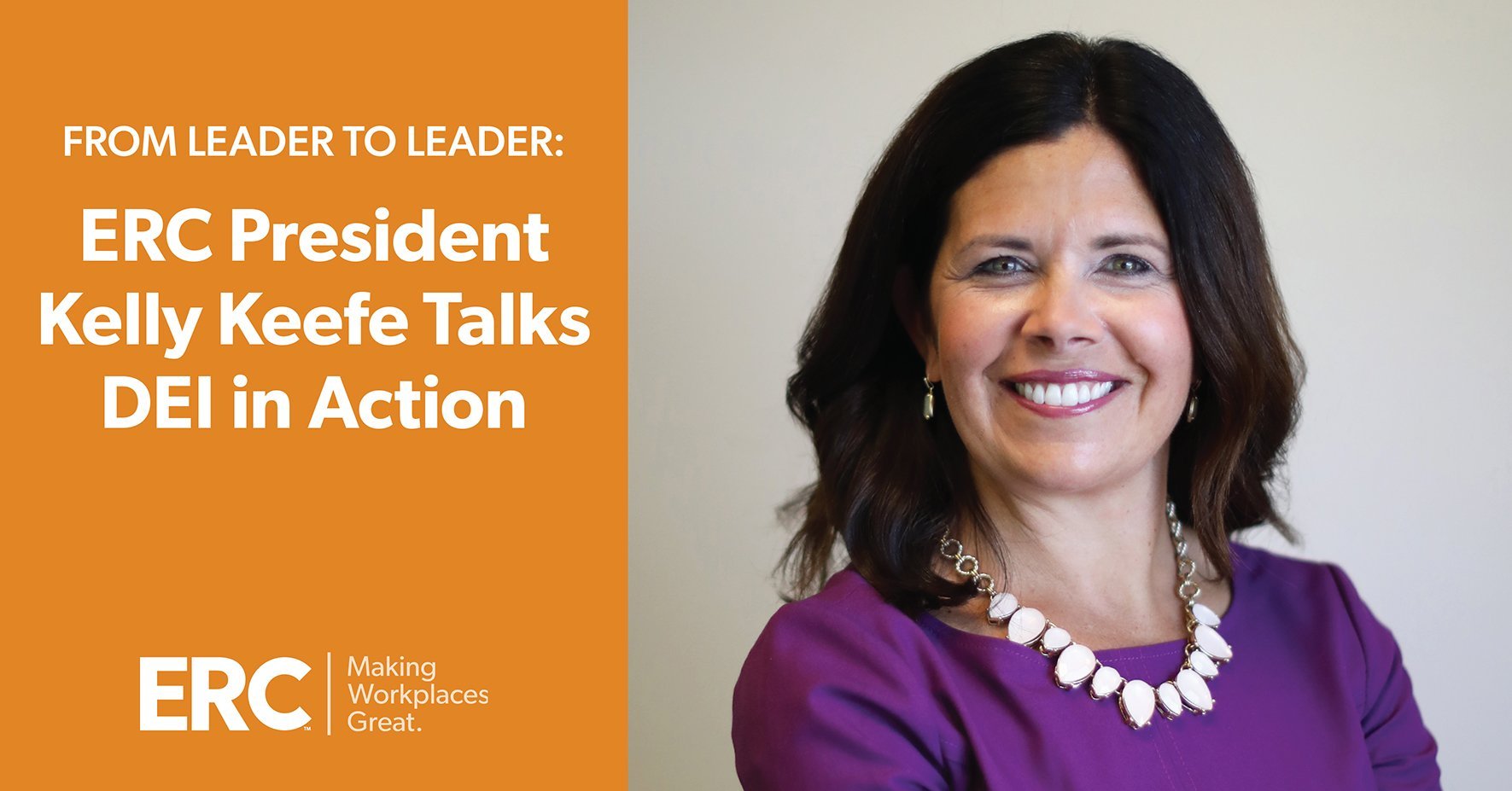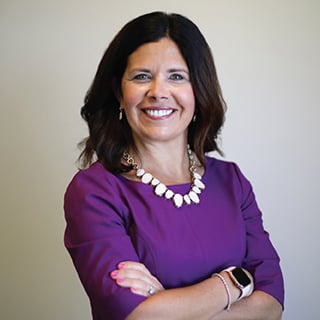
Research shows diverse, equitable, and inclusive organizations are better equipped to drive innovation and growth. Their teams bring different perspectives and backgrounds to the table, which leads to better decision-making and problem-solving.
In recent years, it has become more common for employers to express their commitment to Diversity, Equity, and Inclusion (DEI) through formal, written statements.
While these policies are an important foundation for an organization’s DEI efforts, many employers struggle with how to take these words and implement real change. Their DEI statements tend to sit idly without any tangible programs or policies to back them up.
ERC’s data demonstrates several powerful opportunities that can help move the needle, regardless of where your company falls on its DEI journey.
1. Start the Conversation
Approximately 97% of leaders at award-winning companies in Northeast Ohio are actively facilitating conversations around DEI at their organizations.
For those companies unsure of how to start incorporating DEI into the fabric of their organizations, often it’s as simple as leadership starting with a conversation.
These conversations can take many forms depending on how deeply DEI is (or is not) ingrained into your workplace culture.
For example, we see that it is fairly common for an organization’s leadership to communicate internally with employees about DEI in their workplace. In fact, this is happening at 81% of NorthCoast 99 winning organizations.
Further down the line, we see the more complex practice of conducting working group sessions to encourage active allyship between minority and non-minority employees, which occurs at 40% of NorthCoast 99 winners.
Neither practice is inherently ‘better’ than the other but instead demonstrates the spectrum of conversations that organizations may strive to have internally.

2. Use Inclusive Language
From handbooks to benefits programs to everyday paperwork, your organization has plenty of official written documents.
The contents of these documents can serve to either further feelings of exclusion or inclusion among certain demographics of your workforce.
Incorporating gender-neutral language and structures into written policies, practices, and benefits is a practice adopted by 95% of award-winning organizations.
Specifically, these organizations have incorporated more inclusive, gender-neutral language into policies and practices that focus on the interaction between benefits offerings and relationship status. For example, these companies have structured benefits in such a way that does not assume the existence of a heterosexual relationship for bereavement leave (82%) or health insurance (77%).
The use of gender-neutral pronouns in formal places like handbooks and organization-wide forms or communications is somewhat less common, although still in place at 38% of NorthCoast 99 winning organizations.
Outside of documented policies, applying inclusive language to your job postings and including your DEI statement on your career page can also further your DEI efforts by attracting a more diverse pool of job candidates.
In addition, 39% of NorthCoast 99 winners are strengthening their DEI efforts during the initial recruitment phase by providing potential employees with the opportunity to self-identify their preferred pronoun usage during the hiring process.

3. Ask Actionable Questions
In the end, taking no action to further your commitment to DEI is the only definite non-starter.
But as the range of examples shown in the data above illustrates, deciding which action is right for your organization can be challenging.
Start with the following questions to assess your current state. Then, shape your DEI strategies and policies according to your organizational goals.
- How is your leadership already talking about DEI? Does DEI have a line item on your agenda for leadership meetings? Have you prepared leaders and supervisors on how to speak with employees about DEI programs and efforts? Has your organization created opportunities for them to put those skills into action?
- Does your organization have structures in place to facilitate employee-to-employee conversations around DEI topics (and are these conversations happening)? How are these conversations being captured in a meaningful way, so that the organization can be responsive to the feedback coming out of these discussions?
- Does your organization have peer organizations willing to share, or receive, best practices around DEI for your industry, for your geographic footprint, etc.? If your organization is already a leader in the DEI space, are there opportunities to amplify your efforts externally – B2B or otherwise?
- Have you recently reviewed your handbook and/or benefits offerings with an eye toward DEI? Are there ways these could be structured to be more inclusive? Does your organization need a formal DEI policy audit, or do you have enough internal expertise to conduct a review in-house?
- What do your employees think of the policies and practices already in place? Do they make them feel included or excluded? Does your organization have a mechanism to get a pulse on how employees are feeling, so that you know what changes to make? Should you create a new measure or is there an opportunity to incorporate DEI questions into an existing structure, like an Employee Engagement Survey?
An Organization-Wide Effort
Whether your organization is starting from square one or has a full-fledged DEI department, it’s important to know that building a DEI-focused culture requires a comprehensive and sustained effort from all levels of the organization. Leaders must first commit to it and then hold their employees accountable across the organization to make lasting and meaningful change.

Kelly Keefe, SHRM-SCP
President, ERC
